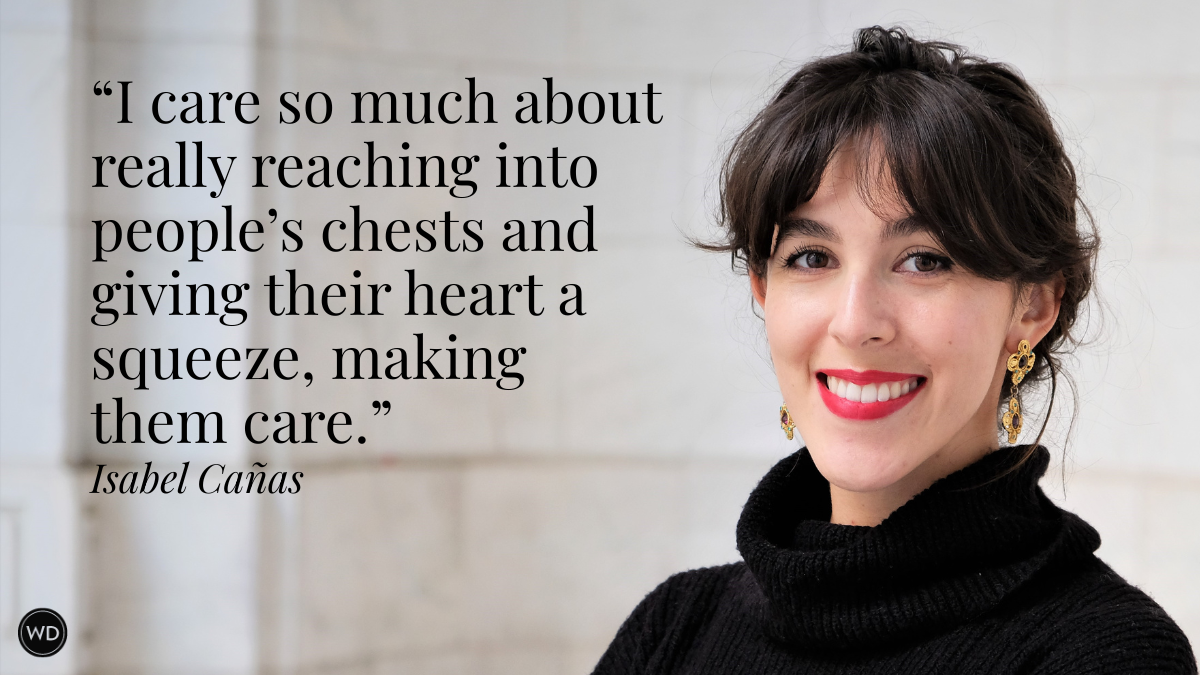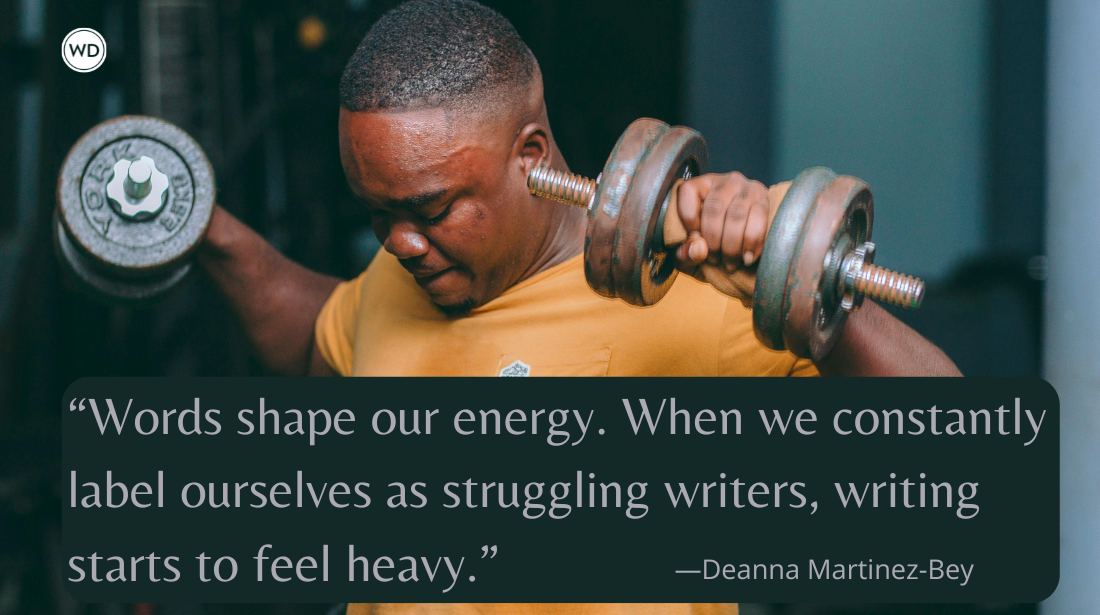Creating Space to Ponder Your Bliss and Relying on Your Inner Compass to Guide Your Writing
What do you do in a world perpetually in fast forward? You create spaces for contemplation. Author Terry Helwig offers advice on creating spaces to ponder your bliss and how to find your inner compass.
I have two offices—one lined with bookshelves, a tawny ergonomic chair, and a monitor cabled to my computer. No surprises there. My second office more surprises—rows of lush mangroves, a banana-yellow kayak supplanting my ergonomic chair, and the vast screen of my imagination instead of a monitor.
It could be argued that my second office is more pivotal to my writing than the first, for it affords me access to one of the most essential building blocks of creativity. Pondering. To ponder is to contemplate, weigh, and consider. Author Christoper Moore says: “Pondering is a little like considering and a little like thinking, but looser. To ponder, one must let the facts roll around the rim of the mind’s roulette wheel, coming to settle in whichever slot they feel pulled to.” Moore’s creative definition captures that moment when an idea clicks into place.
Pondering can bring into focus three very important factors in a writer’s life. It can help us discern our bliss, discover our true north, and activate an internal compass to keep our writing on point and authentic. The major requirement for pondering is quite simple: find a place of undisturbed, unhurried contemplation. Thoreau found Walden Pond; a Florida barrier island found me. The harder part of the equation is not so much finding a place to ponder but the ability to value the fallow time of pondering.
Input is as vital as output—which is why I value both of my offices equally. So, I invite you into my office of mangroves for a little mental roulette.
Discerning Bliss
The dictum to “follow your bliss” originated with mythologist Joseph Campbell. Campbell believed we have an inborn propensity for living a fulfilling life, one that brings forth not only what we are but, also, what we might become. I’m going out on a limb, here, to suggest that if you’re reading an article about writing, you have some idea that your bliss involves writing, as does mine. But a finer point might be what genre of writing. What type of writing brings out the best in you and you the best in it? Of course, we can cross pollinate genres, but identifying our dominant proclivity can inform our choices and our process. It can embolden us to write to our strengths.
I remember a final in my tests and measurement’s class in graduate school. Numbers are not my forte, but storytelling is, so I wrote my final essay in the format of a fairytale about a princess who underwent various tests and measurement. Arranging the information into a story-form (my bliss) helped me remember the data in a way that played to my strengths. Not only did I make an A, but the professor shared my essay with his new students as an example of a creative way to assimilate the information.
Be bold. Everyone’s bliss is different and particular. Ponder what fulfills and excites you. Ignore should thinking—I should do this or write like that. Discerning your bliss helps define your true north in writing.
Discovering True North
As writers, seeking our true north, it’s important to ask ourselves: Does my writing reflect who I am at my core? Is my voice congruent with what I believe and value? I pondered this question at great length some years ago when I began reading the works of Swiss psychiatrist Carl Jung. Jung believed in the importance of individuation which is, basically, the process of discovering one’s true north. I had been writing for a certain publication for several years, but I began feeling stifled in expressing myself. My writing no longer accurately reflected what seemed to be an ever-expanding, authentic me. But writing from a more authentic place would require more vulnerability. I worried what others might think; how would they react?
IndieBound | Bookshop | Amazon
[WD uses affiliate links.]
I overcame my hesitancy in a most unlikely way. I noticed how differently bookstores shelved Dr. Jung’s books. In some bookstores, I found his books in the psychology section; in other bookstores, his books might be shelved in religion, self-help, new age, or one that really threw me, occult. When I pondered this phenomenon, it occurred to me that Jung’s books were shelved according to the beliefs and values of others. The books themselves remained intact and unchanged. I found this realization incredibly freeing. It doesn’t matter how others catalogue us or our writing. Our true north is determined by who we are at our core, not by how others shelve us according to their beliefs. Discerning our true north is an inside job and worth taking time to ponder. In my case, it changed not only me, but the direction of my writing.
Activating Our Inner Compass
Writers are admonished to write every day, but I need a balance between sitting at my desk and luxuriating beneath a blue bowl of sky, surrounded by wild, untamed landscapes. I’m a nature sprite as much as I’m a writer. I have found that being in nature activates my inner compass. It puts me in touch with a subtle knowing. A compass is not a vehicle that drops you off at your destination. Rather, it’s a device that guides you step by step—turn here, go there, you’re off-course. Our inner compass is wired into our body. Pay attention to feelings, nudges, and gut reactions. Don’t discount that faint movement of a needle that causes you to lean one way instead of another. And, more importantly, don’t be thrown off-course by the magnetic pull of someone else. The door to your voice, your story, your treasure, your purpose can only be unlocked by you. You are unique, unlike any other. Let your compass guide you to that door, that place of creative incubation, your true north, where words await.
Terry Helwig is an award-winning author whose new book, Shifting Shorelines, has been praised as a 21st century Gift from the Sea. Terry’s wise, lyrical, and heartwarming prose reveals a deep thinker who finds meaning and correlation between both her inner and outer worlds. A naturalist at heart, with a master’s degree in counseling psychology, Terry says nature and synchronicity have been two of her most profound teachers. Her favorite pastime, combing the beach of a Florida barrier island, is a dream come true—especially for a child whose turbulent upbringing threatened to overwhelm her. Terry recounts her early struggle to keep hope alive in her coming-of-age memoir Moonlight on Linoleum, which won Elle Magazine’s 2012 Grand Prix Nonfiction Book of the Year. Two of the brightest lights in Terry’s sky are her husband Jim and her daughter Mandy.







